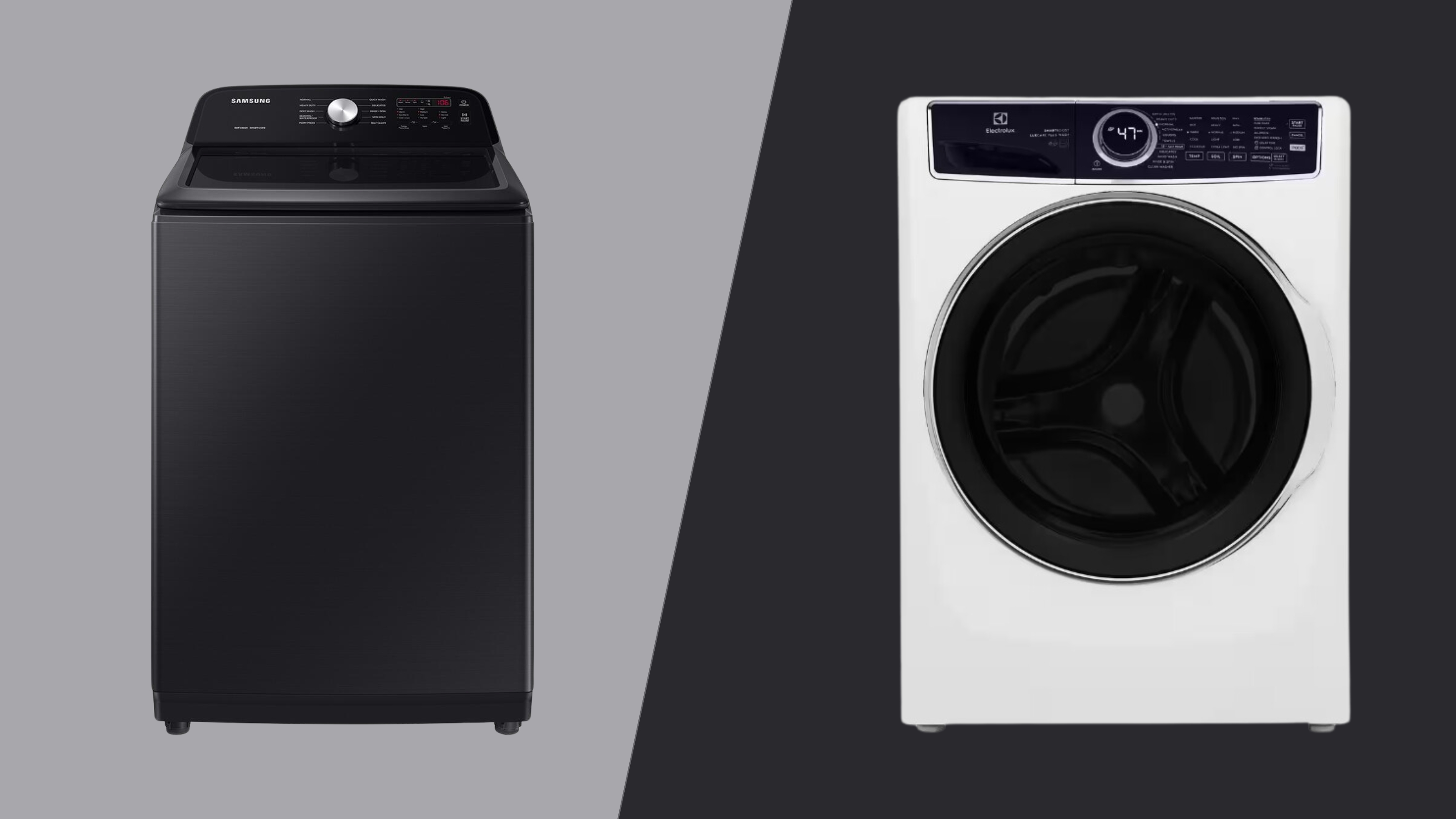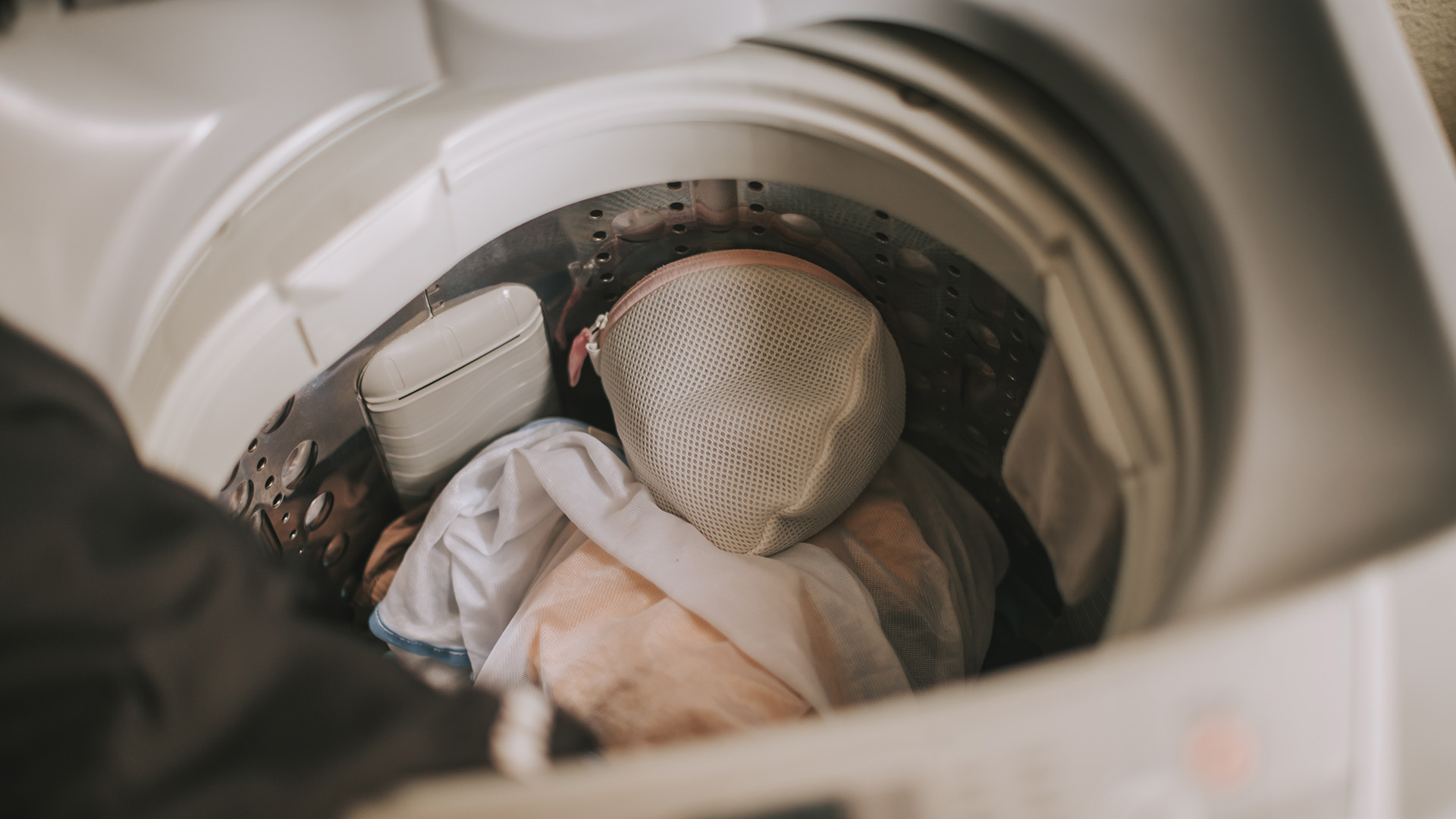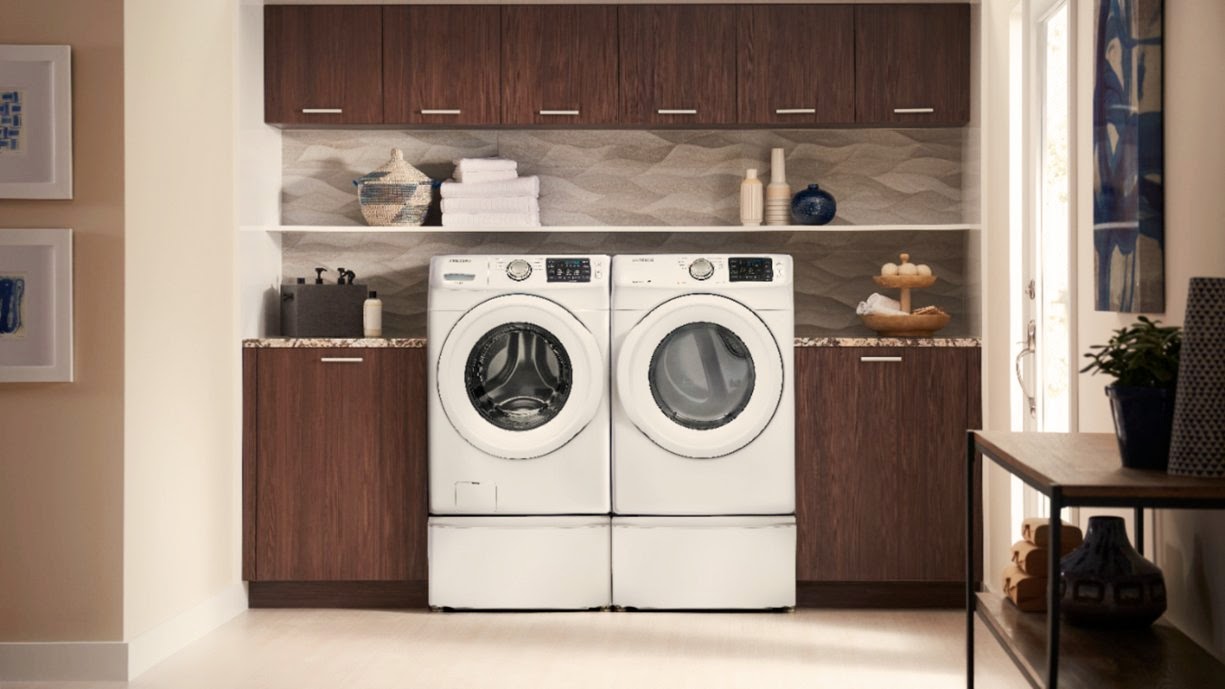Top load vs front load washers: which is the best choice?
Each washer has its strengths

When choosing the best washing machine for your home, you'll first need to decide between top-load and front-load washers. They can both make light work of your laundry, but each offers its own strengths and weaknesses, depending on your household's priorities.
The best top load washers and the best front load washers work differently in terms of how they wash clothes, fit in the home, and how much energy and detergent they use. While top load washers are generally slimmer, front load washers are often stackable, so you can save space when paired with a dryer.
Front-load washers are as popular as they are effective, handling large laundry loads with (often) smart features. Top-load washers, while perhaps lacking in features, remain popular as they can be better suited to those with mobility issues or limited space.
We’ll break down the key differences in price, design, features, capacity, and efficiency to help you decide between a top-load and a front-load washer.
Top Load vs Front Load Washers: Price & value
Top-load washers are the more affordable option, making them a reliable alternative for households with tighter budgets. However, top-loaders often use more water and energy, so they can end up costing you more down the line.
Front-load washers are more expensive upfront, but this is due to their increased washing capabilities. Quicker washes, bigger capacities, and extra cycle options make front-load machines more capable washers, and that tech comes at a higher price point.
However, front-load washing machines are far more efficient and will save precious money on bills over time.
Sign up to receive the latest news, reviews, buying guides and deals direct to your inbox
Top Load vs Front Load Washers: Features & functions
We wouldn’t be able to compare these two types of machines if we didn’t discuss how they wash clothes - which is probably the most significant difference between them.
Top-load washers feature a wash basket that fills with water and submerses the clothes. The basket is also fitted with an agitator—a column that moves from side to side and rubs against the clothes to clean them. This washing method is quite harsh on clothes and can sometimes cause damage.
The cleaning is still not as thorough as a front-loading washer. Top-load machines are improving, however, and some are available with an impeller that spins the clothes around rather than rubs them against an agitator.

Front-load washing machines feature a drum that uses gravity to tumble the clothes around in a spinning motion. Because the clothes are constantly moving, front loaders don’t require as much water to clean them. This method of cleaning is more gentle than using an agitator, and it means front-load washers are normally quieter than top-loaders.
For more info on this, check out our agitator vs impeller guide to see exactly how each washer works.
Top Load vs Front Load Washers: Performance
These days, front-load washers are packed with smart features, like app compatibility, steam washing, and countless cycle presets. For those who can afford one, front-load machines offer greater control over how they wash their clothes while being more energy efficient and less aggressive on laundry.
Top-load washers have a hatch (you guessed it) on the top, which makes them a good option for those with mobility issues because you don’t have to bend down to load your washing. The downside is that you won’t be able to stack a top loader with a dryer, which could be an issue if you’re short on floor space.
Many top-load washers allow you to open the lid and add that odd sock you left behind, even after the wash has started. This isn’t something many front-loaders can offer, but some newer models have an add-garment function.
Getting a suitable capacity washer for your home is critical to avoiding many headaches (and large bills) down the washing line. Washer tubs are measured in cubic feet and are typically categorized as:
• Compact - 1.5-3.4 cubic feet
• Standard or high-efficiency top load - 3.5-4.4 cubic feet
• Large - 4.5 cubic feet or more
Most washers on the market in either type tend to fit into standard or large sizes, but there are also compact or industrial-level models. We recommend measuring the space you have or the previous model and letting that help guide your final decision. Top-load washers are often on the larger side compared with their front-load counterparts.

Another way to measure capacity is how many pounds of laundry the drum can support per load. The size of the washer in cubic feet determines the drum capacity. There are typically a few categories of washer drums to consider:
• Small - up to 13 pounds
• Standard - up to 15.5 pounds
• Large - up to 18 pounds
Reviews
Whirlpool 24" Stainless Steel AI Dishwasher Review
Napoleon TravelQ PRO285 Portable Gas Grill review
Dreame L40 Ultra Robot Vacuum Cleaner and Mop review: almost hands-free cleaning
GE Profile Smart Mixer with Auto Sense review: a powerful, thorough mixer
Echo eForce DPB-2500 review: a leaf blower as a snow removal tool?
DPAS-2100 + Pro Paddle Attachment review: a new way to remove snow this winter?
Midea MAD53109APK 5.5QT Air Fryer review: a small, simple, and highly effective option
Eureka J15 Pro Ultra Robot Vacuum review: hands-free cleaning for busy families
• Extra large - over 19 pounds
The size of your household and how often you do your laundry are some of the key factors that will influence what drum capacity is best for you. Smaller families or people who do less laundry will need a smaller washer, and large families with a lot of laundry loads a week need bigger washers.
Generally, top-load washers can support between 10 and 14 pounds, and front-load washers can support 18 pounds or more on average. The top-load washer may be best for you if you have a smaller space or household. Stackable front-load washers with a larger capacity may be the best fit if you have a larger or taller space.
Top Load vs Front Load Washers: which is better?
Regarding a new washer, you must consider your budget, space, and what features are most important to you. The best top-load washer or front-load washer for you will be different depending on your home and its needs. We recommend doing your research and consulting customer reviews to see what size and features you can get for a reasonable price.
If you are on a tight budget or short on space, a top-load washer may be right for you—just bear in mind that it uses more detergent and water with each load. On the other hand, if energy efficiency and bill savings are more important than the upfront cost, we recommend trying a front washer.
However, the design of each type is also crucial to consider. Top-load washers are often great for those with chronic pain or mobility issues as there is less bending to consider, but it is often easier to reach for laundry in a front-facing drum. Larger families would also benefit from having a larger front washer drum that can stack with a matching dryer.
Decided between the two? Now it's time to learn how to choose a washing machine and find the perfect washer for your home.

Dan Fauzi, former Features Editor at Top Ten Reviews, is a seasoned product reviewer with expertise in tech, homes & gardens, outdoor living, and sports. Dan is currently based in Bristol and holds a BA in Philosophy and an MA in Magazine Journalism. Outside work, Dan enjoys music, art, trekking, and DJing.
